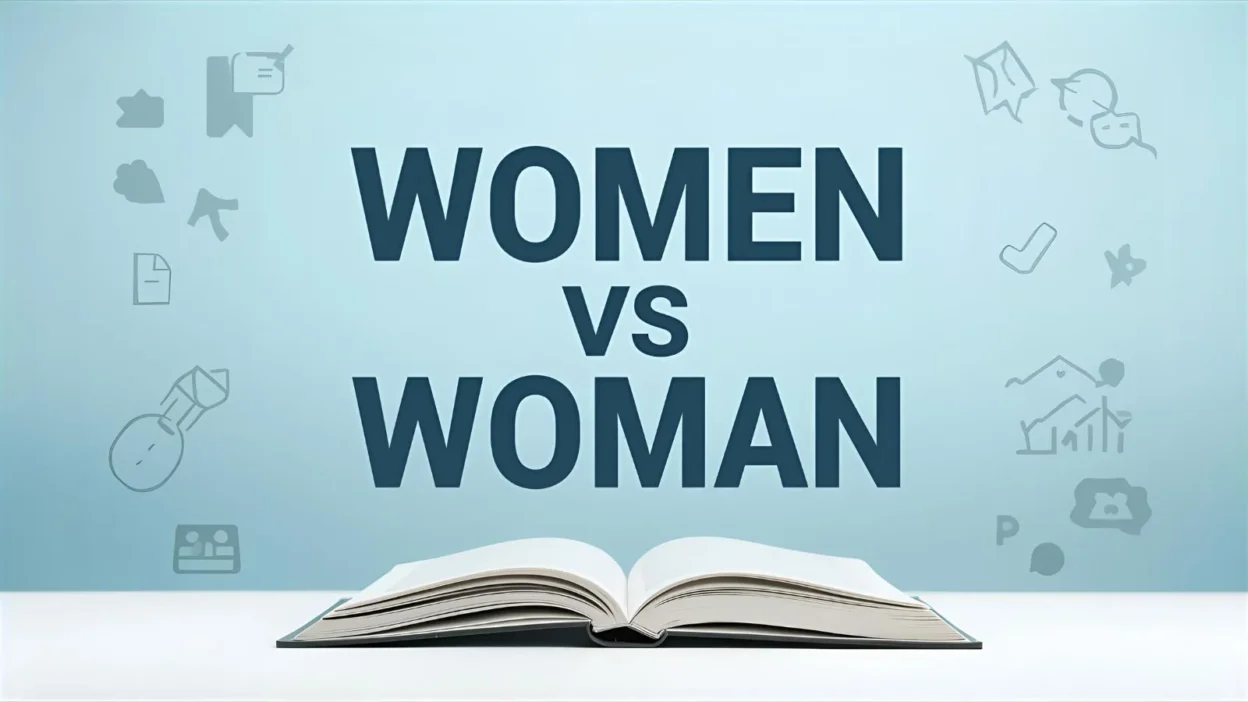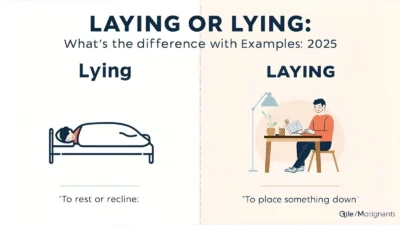Have you ever paused while writing and wondered: Should I use “women” or “woman”? You’re not alone.
This is one of the most common grammar and spelling questions people search for online. The confusion comes from the fact that the two words look almost the same, yet they have different meanings.
For non-native speakers, and even for native English users, “women vs. woman” can be tricky.
Understanding the difference is important for emails, essays, business writing, and everyday conversation. Using the wrong word can make your sentence look unprofessional or confusing.
This guide gives you a quick answer, explains the origin, shows spelling rules in British and American English, highlights common mistakes, and even breaks down usage trends.
By the end, you’ll know exactly when to use woman and when to use women.
Women or Woman – Quick Answer
- Woman = singular (one adult female).
- Example: She is a strong woman.
- Example: She is a strong woman.
- Women = plural (more than one adult female).
- Example: The women in the team are leaders.
- Example: The women in the team are leaders.
👉 Quick Tip: If you’re talking about one, use woman. If you’re talking about more than one, use women.
The Origin of Women/Woman
The word woman comes from Old English wīfmann, meaning “female human.” Over centuries, the spelling changed.
The plural form naturally evolved into women, where the pronunciation kept a short “i” sound despite the “o” spelling. This mismatch between spelling and sound is why learners often get confused.
British English vs American English Spelling
Interestingly, both British and American English spell the words the same way: woman (singular) and women (plural). What differs slightly is pronunciation, with American English often stressing the short “i” in women more clearly.
| Form | British English | American English | Example Sentence |
| Singular | woman | woman | She is a smart woman. |
| Plural | women | women | The women are speaking. |
Which Spelling Should You Use?
- If writing for a US audience → Use woman (singular) and women (plural).
- If writing for UK or Commonwealth readers → Same rules apply.
- For global writing → Stick to these standard spellings; they are universally understood.
✅ Good news: Unlike “color/colour” or “theater/theatre,” there is no spelling difference between US and UK English.
Common Mistakes with Women/Woman
- Using “woman” when you mean plural
- ❌ The woman are working.
- ✅ The women are working.
- ❌ The woman are working.
- Using “women” when you mean singular
- ❌ She is a strong women.
- ✅ She is a strong woman.
- ❌ She is a strong women.
- Mispronouncing “women” as “wo-men”
- Correct: wih-min
- Correct: wih-min
Women or Woman in Everyday Examples
- Emails: We need one woman to represent the group.
- News: Several women were honored for their achievements.
- Social Media: This woman inspires me every day.
- Formal Writing: The study included both men and women.
Women or Woman – Google Trends & Usage Data
Search data shows people often confuse these two words. Google Trends highlights that searches for “women or woman” peak in countries where English is a second language.
| Country | Most Searched Form | Context |
| USA | women | News, social issues |
| UK | women | Education, business |
| India | woman | Grammar learning |
| Nigeria | women | Cultural context |
| Philippines | woman | Grammar correction |
Conclusion
The difference between woman and women is simple but important. Woman is singular, and women is plural. Both British and American English share the same spelling, which makes things easier.
The main challenge comes from pronunciation and remembering the context. If you’re speaking about one person, say woman. If you’re speaking about more than one, say women.
Mastering this small detail can make your English writing clear and professional. Whether you’re drafting an email, posting on social media, or writing a formal report, using the right form will help you sound accurate and confident.
Keep this rule in mind: woMAN = one, woMEN = many. With this guide, you’ll never confuse the two again.
FAQs:
1. Is it correct to say “a women”?
No. Use “a woman” (singular).
2. Can I use “women” for one person?
No. “Women” is only plural.
3. Why does “women” sound like “wih-min”?
It’s due to historical pronunciation changes from Old English.
4. Do British and American English spell these words differently?
No. Both use “woman” (singular) and “women” (plural).
5. How do I remember the difference?
Think: woMAN = one. woMEN = many.
6. Which is more searched: women or woman?
Globally, “women” is searched more because it appears more often in news and cultural discussions.
7. Can “woman” be used as an adjective?
Yes. Example: woman leader, woman doctor.

Hi, I’m Jason Carter, the author behind GrammarNestly.com.
I’m a grammar expert with a passion for helping readers understand the English language in a simple and practical way.
I love breaking down confusing grammar rules and turning them into easy, everyday lessons that anyone can follow.



